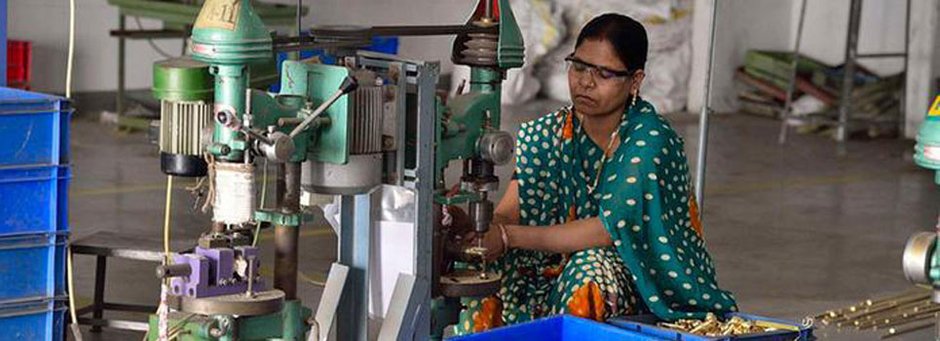Bochum’s India Europe Al brings together German and Indian companies working in the metal sector. Products can be used for a variety of industries, from automotive to security technology.
The international goods business is not solely the domain of large corporations: Small and medium enterprises (SMEs) can also develop products and facilitate business between continents - like India Europe Al, with headquarters in Bochum and a branch office in Bangalore, India. The company specializes in the metal sector.
European companies find in India everything from the practical know-how to economically interesting conditions, especially in this industry, said company founder Michael Wiemann.
In return, long-term construction and development contracts are secured in Indian medium-sized companies.
Since 2009, India Europe Al facilitates orders from Europe to SMEs in the Indian metal industry. Wiemann had worked for European companies for over 25 years, during which he was responsible for the Asia division. As a result of his extensive experience, he became familiar with local Indian companies and their manufacturing quality, especially for aluminum alloys, stainless steel and brass parts.
Customers not only from Germany
Transnational partners, from left: Jamshed Khoree, Michael Wiemann and Mahadev Bhat
Meanwhile, India Europe Al has contracts in place with about 95 medium-sized Indian companies - the smallest employing 25 workers.
"If we count all our contractors, we have up to 650 employees," added Wiemann.
In any case, the decisive factor is the manufacturing quality.
These companies manufacture different parts - including cast, turned, press - and forging parts according to the standards of their European customers, who order these components for themselves or their Chinese daughter companies to fit various purposes. Over 50 percent of the India-manufactured supplies are allocated to the automotive industry. Furthermore, around 25 percent is allotted to general and special machinery, such as for engine technology. Other uses for the products include for sanitary facilities and safety technology.
Only after a quality check of all contractors can full-scale production start in India. The clients are not only from Germany, but also from Austria, Switzerland, the Netherlands, England and Italy and China. The size of the order depends on the respective industry. For larger castings used for machinery construction, orders start at around thousand pieces and then climb upwards.
For parts destined for the automotive industry, Wiemann said, "container loads are sent to Europe with as much as six or seven million units per year."
Good reputation and reliable prices
India Europe Al facilitates orders from Europe...
India Europe Al cannot only rely on a flow of goods. The company will also engage medium-sized Indian companies looking for European partners in the metal industry, who have an interest in a joint venture or in a corporate merger in the Indian market.
Indian companies have a good reputation, especially in the metal industry – a statement that is confirmed by Chamber of Commerce and Industry foreign expert Hans-Peter Merz.
India, said Merz, now has a very interesting industry. "One can, in particular, trust India to superbly manufacture casting, turning and machinery parts."
Merz has found India to be increasingly attractive to some German companies for another reason.
"Larger companies in particular, as well as larger SMEs, are going increasingly to India to become directly and independently active,” Merz said.
He added that this may take on the form of a joint venture or an acquisition of an existing company site. Increasingly, this could come about through the setup of new branches to produce primary materials in-house.
...for Indian SMEs specializing in the metal sector
Just like the Chamber of Commerce experts, it crucially depends on Wiemann to cooperate with Indian companies, so that environmental and social standards are met during the production process.
Wiemann emphasized that he needed to make sure that his Indian partners in Bangalore adhere strictly to the regulations on-site.
And regarding the competition from China - previously deemed to be overwhelming - Wiemann has learned to appreciate the quality and contractual compliance of Indian suppliers.
Furthermore, reliable prices are also important for him - a point that is reaffirmed by other companies' experiences.
The situation now "is better than the ones we know of from China," Wiemann said. "In India we mostly outlined contracts that run for two or three years without any price increases."
Whereas of course material price increase and exchange rate will be adapted to keep a win win situation m for all partners in the business.
Considering the currently weak domestic market, orders from Germany and other European countries ensure sufficient jobs for Indian SMEs. This in turn saves European companies production costs.
×


